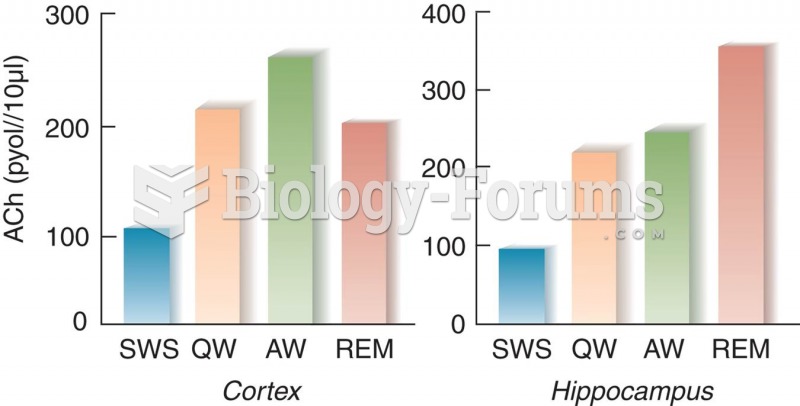|
|
|
As the western states of America were settled, pioneers often had to drink rancid water from ponds and other sources. This often resulted in chronic diarrhea, causing many cases of dehydration and death that could have been avoided if clean water had been available.
Between 1999 and 2012, American adults with high total cholesterol decreased from 18.3% to 12.9%
The heart is located in the center of the chest, with part of it tipped slightly so that it taps against the left side of the chest.
There used to be a metric calendar, as well as metric clocks. The metric calendar, or "French Republican Calendar" divided the year into 12 months, but each month was divided into three 10-day weeks. Each day had 10 decimal hours. Each hour had 100 decimal minutes. Due to lack of popularity, the metric clocks and calendars were ended in 1795, three years after they had been first marketed.
There are major differences in the metabolism of morphine and the illegal drug heroin. Morphine mostly produces its CNS effects through m-receptors, and at k- and d-receptors. Heroin has a slight affinity for opiate receptors. Most of its actions are due to metabolism to active metabolites (6-acetylmorphine, morphine, and morphine-6-glucuronide).
 Care must be taken in handling bodily fluids to prevent the transfer of infectious agents through co
Care must be taken in handling bodily fluids to prevent the transfer of infectious agents through co
 Hospice care is based on the belief that when death is inevitable, professional caregivers should ...
Hospice care is based on the belief that when death is inevitable, professional caregivers should ...





